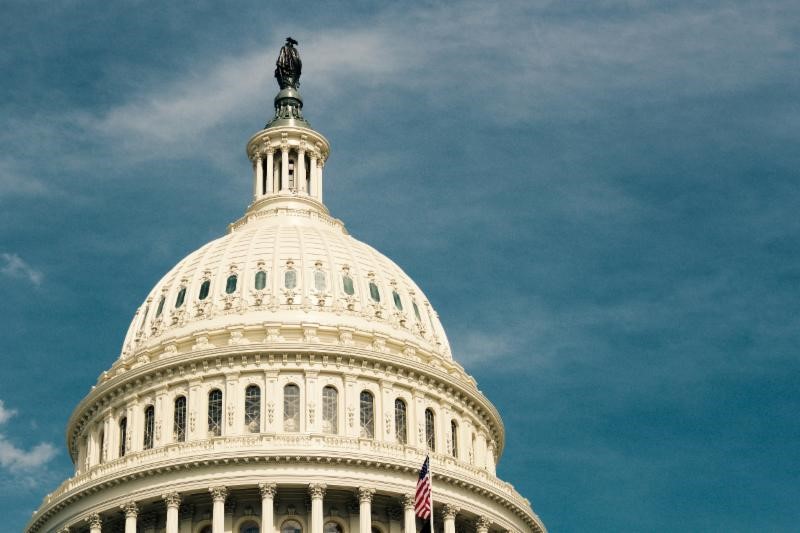Topic intro description here. Limited to 145 characters. Topic intro description here. Limited to 145 characters. Topic intro description here.
Developing a Prototype Opioid Surveillance System at a 2-Day Virginia Hackathon
Developing a Prototype Opioid Surveillance System at a 2-Day Virginia Hackathon
Catherine Ordun, Jessica Bonnie, Jung Byun*, Daewoo Chong, Richard Latham and Joshua Wei
Objective
A team of data scientists from Booz Allen competed in an opioid hackathon and developed a prototype opioid surveillance system using data science methods. This presentation intends to 1) describe the positives and negatives of their data science approach, 2) demo the prototype applications built, and 3) discuss next steps for local implementation of a similar capability.
Aetna’s Initiative on the Opioid Epidemic
Aetna’s Initiative on the Opioid Epidemic - The Aetna Foundation is launching a funding initiative to fight the the ongoing opioid epidemic in the U.S. and help communities and states that have taken a hard hit.
Check out the presentation.
eHI Policy Update | Summer 2018
eHealth Initiative staff and members are regularly meeting with key legislators and congressional staff to educate policymakers on the issues our members are most passionate about.
We have been tackling the opioid epidemic and held a series of hill meetings, led a roundtable discussion, and completed an opioid issue brief. Legislators are asking about our members' use of analytics and data to target at-risk populations and track the opioid crisis. Follow the link to share your organizational initiatives on opioids.
What's happening:
- On June 22, 2018, HR 6, the SUPPORT Patients and Communities Act of 2018 passed the house with 396 ‘yeas’ to 14 ‘nays’. The largely bipartisan bill is co-sponsored by the chairman of the Energy and Commerce Committee, Representative Walden, and a ranking member of the same committee, Representative Pallone. We are waiting to see if the bill passes the Senate. For more information on HR 6 and other opioid related legislation, see the links below.
- In the House Energy and Commerce Committee’s hearing, “Improving the Coordination and Quality of Substance Use Disorder Treatment,” Dr. H. Westley Clark, a Dean’s Executive Professor at Santa Clara University, compared the Opioid Prevention and Patient Safety Act to the Facebook scandal involving Cambridge Analytics. Representative Mullin, the bill’s sponsor, was quick to fight back against that allegation.
- At the Senate Finance’s “Rural Health Care in America: Challenges and Opportunities” hearing, Ms. Karen Murphy, PhD, RN, the Executive Vice President, Chief Innovation Officer, and Founding Director of the Glenn Steele Institute of Health Innovation, along with other witnesses, encouraged Congress to help rural hospitals use technological innovation to move away from traditional care delivery and into the value-based payment models.
- The FDA has recently published a document that provides guidance to researchers on the use of EHRs in FDA-regulated clinical trials.
- Ed Simcox, Deputy Chief Technical Officer of the Department of Health and Human Services, will be taking over duties for Bruce Greenstein, the current Chief Technical Officer, who will be heading back into the private sector with the LHC Group.
- Senators will not be getting air miles in August! Senate Majority Leader Mitch McConnell cancelled three weeks of the August Recess.
- The Department of Veterans Affairs may have decided to scrap planned EPIC software instead of paying the multi-million dollar contract for the Medical Appointment Scheduling system.
Opioid legislation to watch...
- S.2456 Comprehensive Addiction and Recovery Act 2.0

- S.581 Jessie’s Law
- S.2680 OCRA
- S.2460 Every Prescription Conveyed Securely Act
- S. 2901 Expanding Telehealth Response to Ensure Addiction treatment (eTREAT) Act
- S. 2912 Opioid Addiction Treatment Programs Enhancement Act
- HR. 3528 Every Prescription Conveyed Securely Act
- HR. 6 SUPPORT Patients and Communities Act of 2018
- HR. 5311 House Comprehensive Addiction and Recovery Act 2.0
- HR. 3545 Overdose Prevention and Patient Safety Act
Who should we add to our policy meeting list? Email Emma@ehidc.org
Complementary and Integrative Health (CIH) Interventions for Preventing or Reducing Opioid Use
The Comparative Effectiveness of Selected Complementary and Integrative Health (CIH) Interventions for Preventing or Reducing Opioid Use in Adults with Chronic Neck, Low Back, and Large Joint Pain
Over the past two decades, there has been a dramatic increase in opioid related overdose deaths, dependence, and misuse. As a result, there is intense interest in non-opioid alternatives for treating chronic pain. Select Complementary and Integrative Health (CIH) interventions may be a reasonable non-opioid treatment option if they can improve pain at a magnitude comparable to opioids, but without serious side effects. Whether CIH interventions can reduce chronic opioid use is of great interest in the fight against the opioid epidemic.
CMS Leverages Medicaid Program To Combat The Opioid crisis
Today, the Centers for Medicare & Medicaid Services CMS released guidance aimed at building on their commitment to partner with states to ensure that they have flexibilities and the tools necessary to combat the opioid crisis. This new guidance provides information to states on the tools available to them, describes the types of approaches they can use to combat this crisis, ensures states know what resources are available, and articulates promising practices for addressing the needs of beneficiaries facing opioid addiction. Notably, CMS released an Informational Bulletin that provides states with information they can use when designing approaches to covering critical treatment services for Medicaid eligible infants with Neonatal Abstinence Syndrome (NAS). Additionally, CMS issued a letter to states on how they may best use federal funding to enhance Medicaid technology to combat drug addiction and the opioid crisis.
CMS Opioid Roadmap
Although some progress has been made in efforts to combat the opioid epidemic, the latest data from the Centers for Disease Control and Prevention indicate the crisis is not slowing down. However, it is important for their beneficiaries across the country to know that the Centers for Medicare & Medicaid Services (CMS) is exploring all of their options to address this national crisis.
Getting Started with Electronic Prescribing of Controlled Substances
The videos and digital tools on www.getEPCS.com make it easy for users to learn what to do to get their practice up and running with electronic prescribing of controlled substances (EPCS).
Virtual Townhall - e-Prescribing
Issue Brief: Sharing Behavioral Health Information Amid the Opiod Crisis
 As the old model of patient care silos—where behavioral health providers treat patients separately from the rest of the healthcare system—breaks down, participants from across healthcare are attempting to access patient-specific behavioral health data to create integrated care models. Primary care providers are taking on a greater role in treating those with addictions, as are new players (teletherapy companies), and traditional entities (providers, health plans, pharmaceutical companies). The opioid epidemic has increased the need for behavioral health services and for healthcare stakeholders to seek a more active role in managing behavioral health.
As the old model of patient care silos—where behavioral health providers treat patients separately from the rest of the healthcare system—breaks down, participants from across healthcare are attempting to access patient-specific behavioral health data to create integrated care models. Primary care providers are taking on a greater role in treating those with addictions, as are new players (teletherapy companies), and traditional entities (providers, health plans, pharmaceutical companies). The opioid epidemic has increased the need for behavioral health services and for healthcare stakeholders to seek a more active role in managing behavioral health.
On May 1, eHealth Initiative Foundation and Manatt, Phelps & Phillips hosted an executive advisory board on the role of health information technology in protecting and sharing behavioral health data amid the opioid crisis. The roundtable meeting, Sharing Behavioral Health Information in Light of the Opioid Epidemic, explored the role of privacy and security in the context of the crisis. Much of the discussion focused on the impact of policies and regulations that hinder the sharing of sensitive patient data and affects health outcomes. Experts and industry leaders from Walgreens, Surescripts, CRISP, OhioHealth, Senator Shelley Moore Capito’s office, and the Substance Abuse and Mental Health Services Administration (SAMHSA) provided information on the policies and technologies that affect the use of behavioral health information in patient care and discussed ways to address challenges.
This brief addresses the role of electronic prescribing of controlled substances (EPCS), regulatory and legislative obstacles, including 42 Code of Federal Regulations Part 2 (42 CFR Part 2), the Health Insurance Portability and Accountability Act (HIPAA), and the Prescription Drug Monitoring Program (PDMP), and aims to provide potential solutions for tackling the opioid crisis.
Webinar: America's Opioid Crisis: Status, Solutions, and Next Steps
Presentation slides from 4/12/18 webinar from Manatt on the opioid crisis. Agenda includes:
- Genesis of the Crisis
- Response by State and Local Governments
- Response by the Federal Government
- Provider and Insurer Perspectives
- Life Sciences Industry Perspective
- Hypothetical

